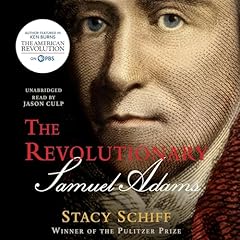
Female Genius
Eliza Harriot and George Washington at the Dawn of the Constitution
No se pudo agregar al carrito
Add to Cart failed.
Error al Agregar a Lista de Deseos.
Error al eliminar de la lista de deseos.
Error al añadir a tu biblioteca
Error al seguir el podcast
Error al dejar de seguir el podcast
Prueba gratis de 30 días de Audible Standard
Compra ahora por $20.78
-
Narrado por:
-
Suzie Althens
In this provocative biography, Mary Sarah Bilder looks to the Age of the Constitution to investigate the rise of a radical new idea in the English-speaking world: female genius. Bilder finds the perfect exemplar of this phenomenon in Eliza Harriot Barons O'Connor. This pathbreaking female educator delivered a University of Pennsylvania lecture attended by George Washington as he and other Constitutional Convention delegates gathered in Philadelphia. As the first such public female lecturer, her courageous performance likely inspired the gender-neutral language of the Constitution.
Female Genius reconstructs Eliza Harriot's transatlantic life, paying particular attention to her lectures and the academies she founded, inspiring countless young American women to consider a college education and a role in the political forum. Promoting the ideas of Mary Wollstonecraft, Eliza Harriot brought the concept of female genius to the United States. Its advocates argued that women had equal capacity and deserved an equal education and political representation. Its detractors, who feared it undermined male political power, felt deeply threatened. By 1792 Eliza Harriot experienced struggles that reflected the larger backlash faced by women and people of color as new written constitutions provided the political and legal tools for exclusion based on sex, gender, and race.
©2022 the Rector and Visitors of the University of Virginia (P)2022 TantorLos oyentes también disfrutaron:
















